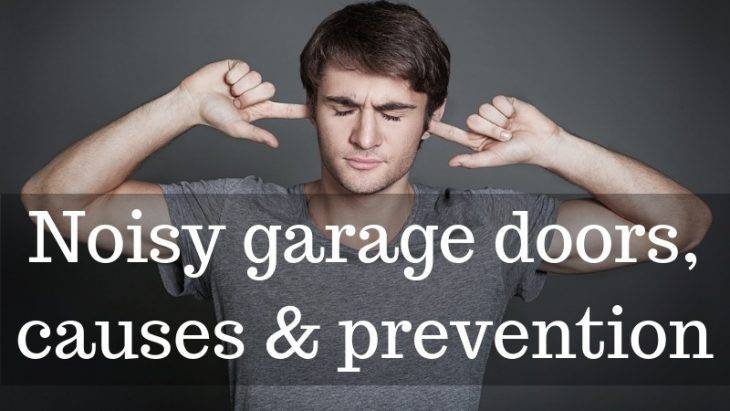
Automatic garage doors are complex systems with pulleys, springs and cables. Garage doors may be very noisy for various reasons. It is actually usually relatively easy to remedy excessive noise in garage door operation. An experienced garage door repair professional can fix it for you in short order. But what causes a garage door to be so noisy in the first place?
There are several reasons for a noisy garage door. To identify the causes of the noise, you need to locate the specific parts that are responsible. In some cases the problem may be fixed with a repair job that is so simple you can do it yourself, though you are usually well advised to obtain the services of a garage door repair professional to make sure the job is done correctly.
5 Common causes for excessive garage door noise
1Worn or damaged parts
Pulleys and/or rollers may become damaged and worn out due to years of use. In that case the bearings need to be replaced by a professional technician. It is also possible that the coils in the springs become bent and rub together during the opening and closing of the garage door, which causes the noise. In this case, the springs need to be replaced. Metal rollers may also need to be replace if they become noisy from age-related wear. Once damaged and worn parts are replaced, it is important to lubricate all the parts of the garage door regularly.
2Noisy garage door opener
It is possible that your garage door opener itself is causing excessive noise. So what type of garage door opener do you have? Is it a screw, a chain or a belt drive? Chain drives are inherently the noisiest of the lot. They do have other benefits that make up for the noise they make, such as the fact that they inexpensive, durable and work well in any conditions, even in the harshest weather. So, if you have a chain drive opener, you should try lubricating it as often as you can and see if that reduces the noise a bit. Screw drives are not as noisy as chain drive openers, but they start making a lot of noise as well after a couple of years of use. Belt drives make the least noise. So if cutting down the noise is your chief consideration, you should select garage doors with belt drives.
3Garage door unbalanced
Your garage door may have become unbalanced. Occasionally a garage door simply becomes unbalanced, resulting in poor functioning and excessive noise. You can check the stability of the door by simply pulling the emergency cord so that you can open and close it manually. Then lift the door halfway and let go. If it is stable, it won’t move much; if it is unbalanced, it will start to fall. In that case, you should have the problem addressed by a garage door repair professional.
4Springs worn out
The springs may be worn out. Garage door springs inevitably eventually wear out, resulting in malfunction and excessive noise. While you might be able to replace springs on the sides of the door yourself, replacing the torsion springs at the top of the door are a different story altogether. You should never attempt to replace the torsion springs on your own, as it is quite dangerous and can lead to head injuries when done by those without adequate training. Torsion springs should only be replaced by a qualified garage door repair professional.
5Hinges damaged
Garage door hinges may also be worn and damaged. As far as the hinges are concerned, you can try oiling them and find out if that reduces the squeaking noises made by the door. If, after lubrication, the hinge continues to make a grinding noise, you should get it replaced, because the gear and the sprocket are malfunctioning. A professional technician will know how to deal with this issue.
For the best garage door repair and installation in Memphis, Tennessee, trust only Memphis Garage Door Repair & Installation. We have more than 15 years of experience in the industry, and we provide you with the most professional service and only install products of the highest quality. We are proud to serve the Mid-South and Northern Mississippi area. Please call us at 901-461-0385 for a free estimate.
